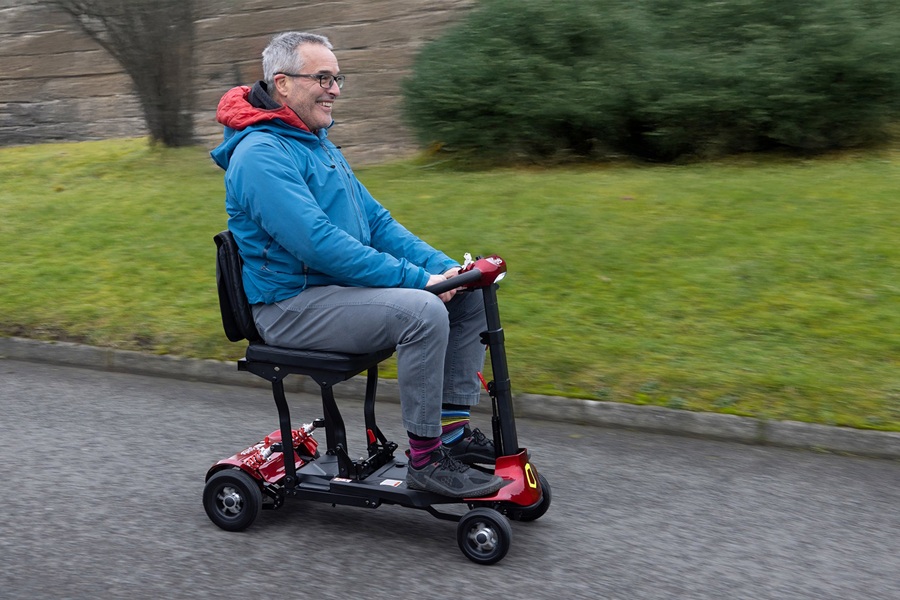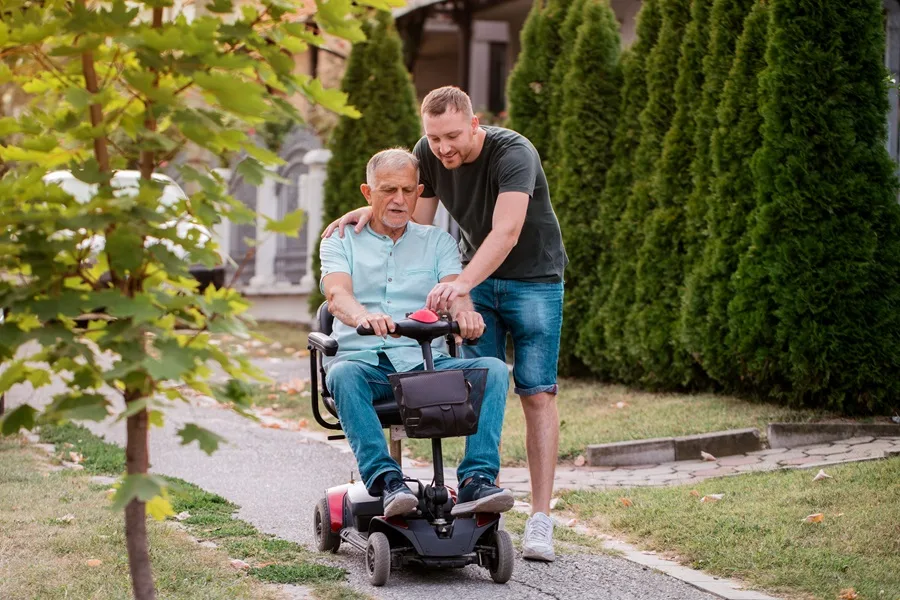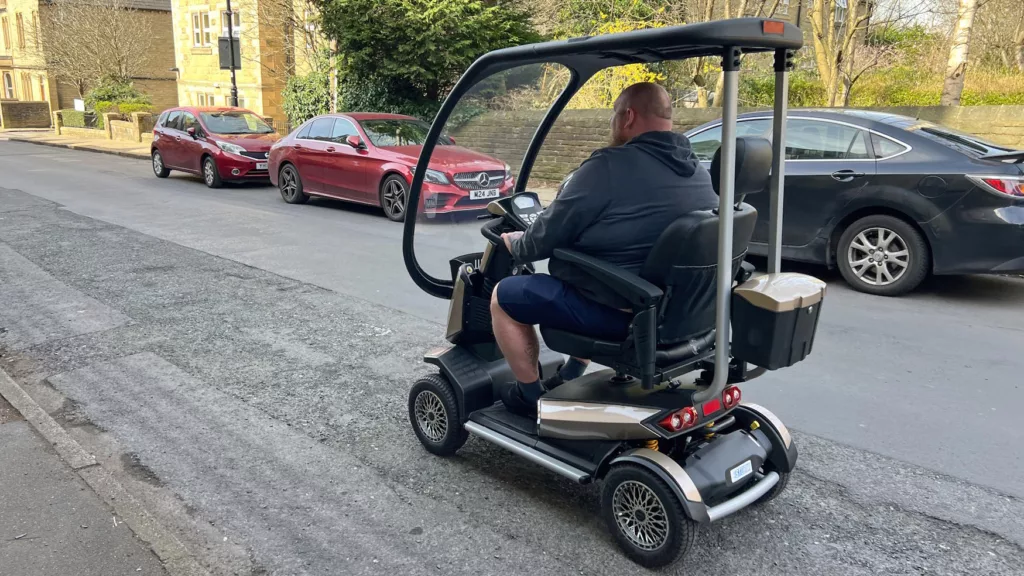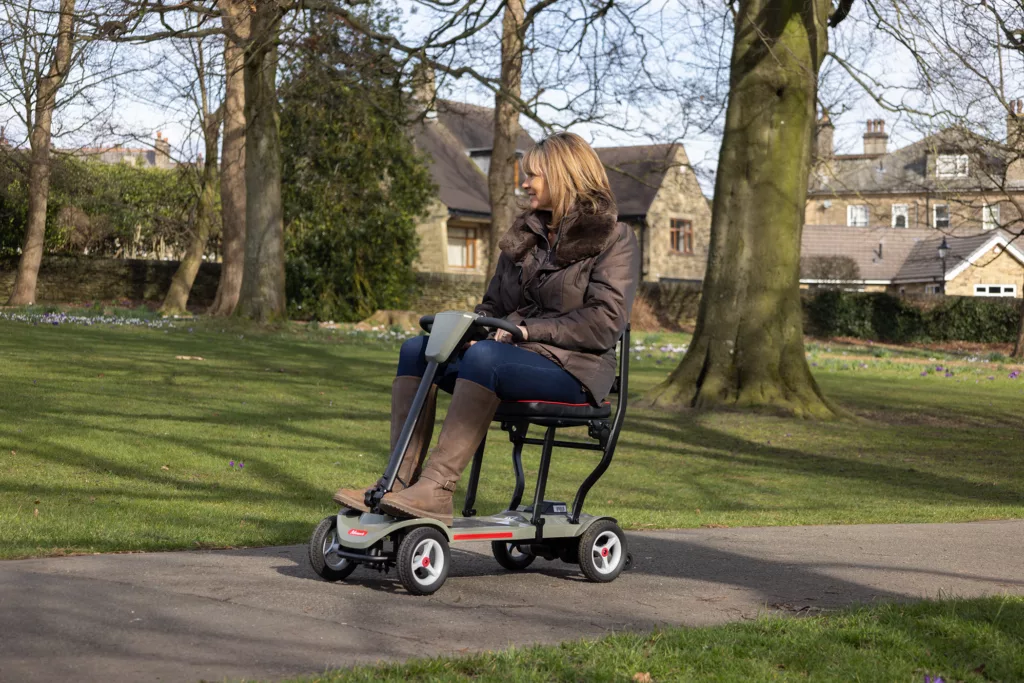
When you’re looking to buy a mobility scooter in the UK, it’s essential to understand the laws and regulations that apply. While mobility scooters offer independence and freedom for people with limited mobility, they are still considered vehicles and are therefore subject to certain legal requirements.
In this article, we’ll cover everything you need to know about mobility scooters and the law — including age restrictions, registration, insurance, road use, and parking rules.
Before you begin, it’s worth noting the difference between class 2 and class 3 mobility scooters, as mobility scooter laws and usage rules vary according to the class of scooter.
In the UK, you can only drive a mobility scooter if you have a physical disability or limited mobility because of an injury or medical condition.
In addition to this, there are specific eyesight requirements for mobility scooter users: If you own a class 2 or 3 mobility scooter, you must be able to read a car’s number plate from 12.3 metres away. If your mobility scooter is ‘not in a class’, you must be able to read a number plate from a distance of 20 metres. You can be prosecuted if you have an accident because of poor eyesight, so it’s important to ensure your vision meets the legal standard.
Mobility scooter age limits vary depending on the class of your scooter:

No, mobility scooter laws don’t require you to take a test to drive a mobility scooter.
However, we recommend taking your scooter somewhere quiet before your first outing to familiarise yourself with the controls and how your scooter handles. Check out our tips for first time mobility scooter users.
No, you don’t need a driving licence to legally operate a mobility scooter in the UK, regardless of the class.
They are exempt from the UK driving licence system because they are classed as invalid carriages under the law.
All mobility scooters are exempt from road tax. However, class 3 scooters must be registered with the DVLA before they can be used on public roads, in accordance with current mobility scooter regulations.
Before taking your class 3 mobility scooter on the road, it is essential that you register it with the DVLA to ensure it complies with UK road safety laws. Find out more about how to register your mobility scooter with the DVLA.

Whilst you don’t legally need to get insurance for a mobility scooter, it is strongly recommended to cover you in the event of an accident, mechanical failure, theft or breakdown. Learn more about the benefits of insuring your mobility scooter.
The mobility scooter speed limit and the law on mobility scooters when it comes to road or pavement use, vary depending on the class.
Read our article Mobility Scooters on the Road: The Rules for more details.
You can legally park your mobility scooter anywhere that it doesn’t cause an obstruction. When you park, avoid blocking pavements, driveways, cycle paths, or dropped kerbs.
Many shops and supermarkets have designated mobility scooter parking bays located close to their entrances.
Note: You cannot use a blue badge when parking on your mobility scooter, as they only apply to cars and other motor vehicles.
Yes, class 3 mobility scooters must be equipped with lights, indicators and a rear view mirror to ensure they are safe and legal on the roads.
Although not legally required, it is recommended that you wear a helmet, hi-vis, and other protective gear when riding a scooter, especially on roads.

Choosing the right scooter means understanding the features you need as well as the mobility scooter laws that apply to different classes.
Whether you need a compact class 2 scooter for pavement use or a more powerful class 3 model for journeys on the road, Monarch has a wide range of mobility scooters to suit every lifestyle and budget.
Contact our expert team for further details or to arrange a free home demo.
